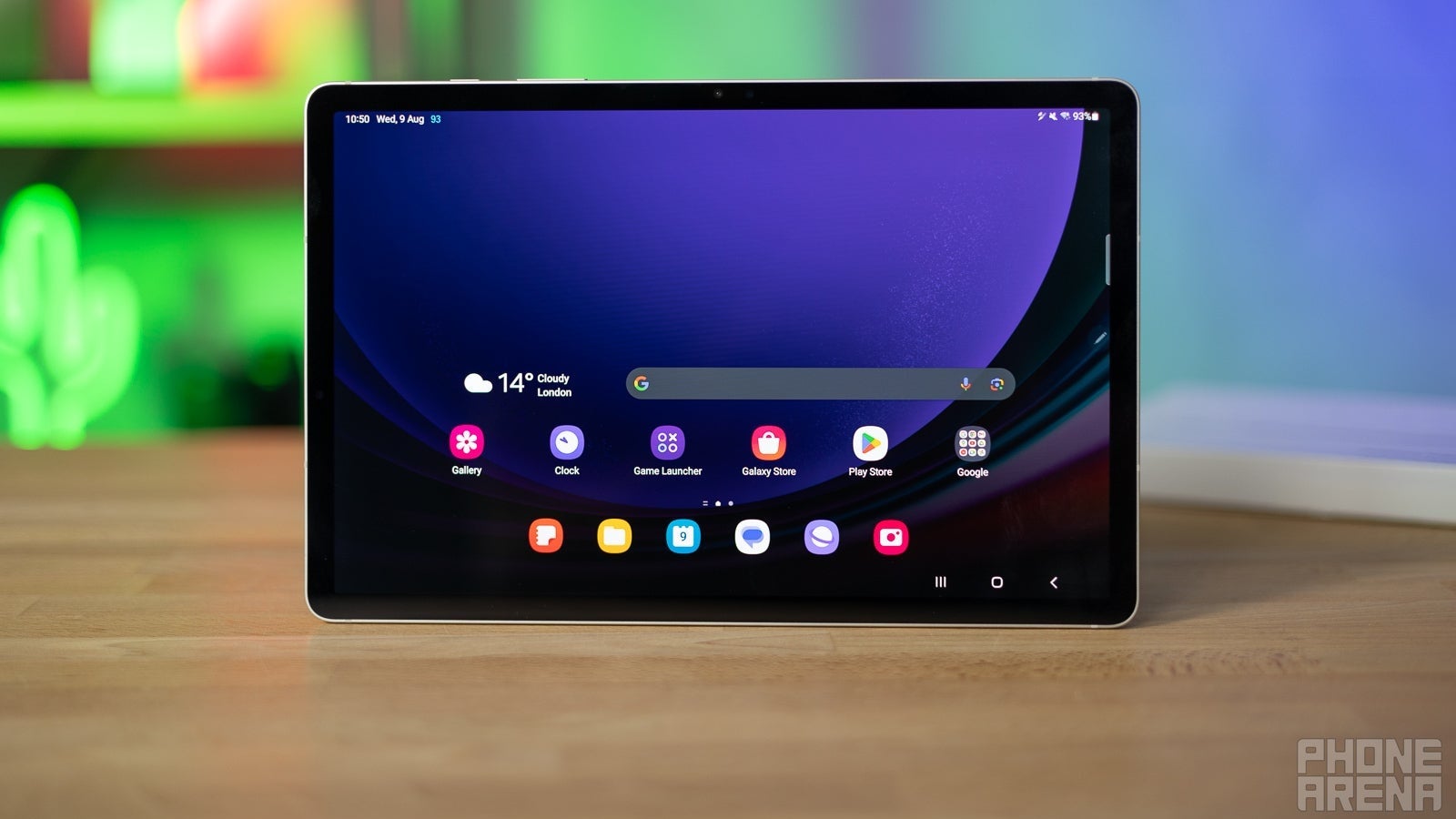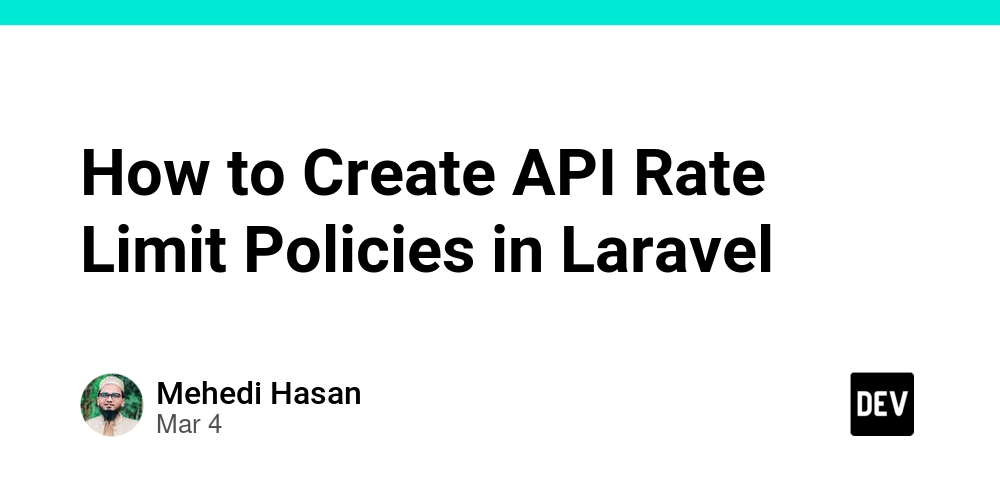Web Scraping with JavaScript and Playwright: A Modern Approach with Code Examples
Web scraping has evolved to tackle the challenges of modern web applications, where content is often loaded dynamically via JavaScript. Enter Playwright—a powerful, open-source automation library by Microsoft that simplifies scraping complex websites. Unlike older tools, Playwright supports Chromium, Firefox, and WebKit out of the box and handles SPAs, authentication, and even shadow DOMs with ease. In this guide, you’ll learn how to scrape websites using JavaScript and Playwright, complete with practical code examples. Why Playwright? Cross-browser support: Scrape with Chromium, Firefox, or WebKit. Auto-waiting: No more manual sleep() calls—Playwright waits for elements to load. Mobile emulation: Test responsive sites or mimic mobile devices. Stealth mode: Avoid bot detection with features like masking headless browsers. Rich API: Handle file downloads, network interception, and more. Setup First, initialize a Node.js project and install Playwright: npm init -y npm install playwright Basic Scraping: Extracting Data Let’s scrape book titles and prices from a demo e-commerce site (https://books.toscrape.com). const { chromium } = require('playwright'); (async () => { // Launch a headless browser const browser = await chromium.launch({ headless: true }); const page = await browser.newPage(); // Navigate to the target page await page.goto('https://books.toscrape.com'); // Extract book titles and prices const books = await page.$$eval('.product_pod', (items) => { return items.map(item => ({ title: item.querySelector('h3 a').getAttribute('title'), price: item.querySelector('.price_color').innerText, })); }); console.log(books); await browser.close(); })(); Explanation: chromium.launch() starts a headless browser instance. page.$$eval() runs a function in the browser context to query DOM elements. The selector .product_pod targets each book container, and nested queries extract the data. Handling Dynamic Content Modern sites often load data via AJAX or user interactions (e.g., clicking "Load More"). Playwright makes this straightforward: const { firefox } = require('playwright'); (async () => { const browser = await firefox.launch({ headless: false }); const page = await browser.newPage(); await page.goto('https://example-infinite-scroll.com'); // Scroll to the bottom repeatedly until no more content loads let previousHeight; while (true) { previousHeight = await page.evaluate('document.body.scrollHeight'); await page.evaluate('window.scrollTo(0, document.body.scrollHeight)'); await page.waitForTimeout(2000); // Wait for content to load const newHeight = await page.evaluate('document.body.scrollHeight'); if (newHeight === previousHeight) break; } // Extract all loaded items const items = await page.$$eval('.item', elements => elements.map(el => el.innerText) ); console.log(`Loaded ${items.length} items.`); await browser.close(); })(); Advanced Techniques 1. Authentication & Sessions Log into a site and reuse cookies for future sessions: const { webkit } = require('playwright'); (async () => { const browser = await webkit.launch({ headless: false }); const page = await browser.newPage(); // Navigate to login page await page.goto('https://example.com/login'); await page.fill('#username', 'user123'); await page.fill('#password', 'pass123'); await page.click('#submit'); // Wait for login to complete await page.waitForNavigation(); // Save cookies for reuse const cookies = await page.context().cookies(); console.log('Cookies saved:', cookies); await browser.close(); })(); 2. Avoiding Detection Use Playwright’s stealth plugins to mimic human behavior: const { chromium } = require('playwright'); const stealth = require('puppeteer-extra-plugin-stealth')(); (async () => { const browser = await chromium.launch({ headless: false, args: ['--disable-blink-features=AutomationControlled'] }); const page = await browser.newPage(); // Mask headless browser fingerprints await page.addInitScript(() => { delete navigator.webdriver; }); await page.goto('https://example-protected-site.com'); // ... proceed with scraping })(); 3. Intercepting Network Requests Capture API responses to scrape data directly from XHR/Fetch calls: const { chromium } = require('playwright'); (async () => { const browser = await chromium.launch(); const page = await browser.newPage(); // Listen for network responses page.on('response', async (response) => { if (response.url().includes('/api/data')) { const data = await response.json(); console.log('API Data:', data); } }); await page.goto('https://example-spa.com'); await browser.close(); })(); Best Practices Rate Lim
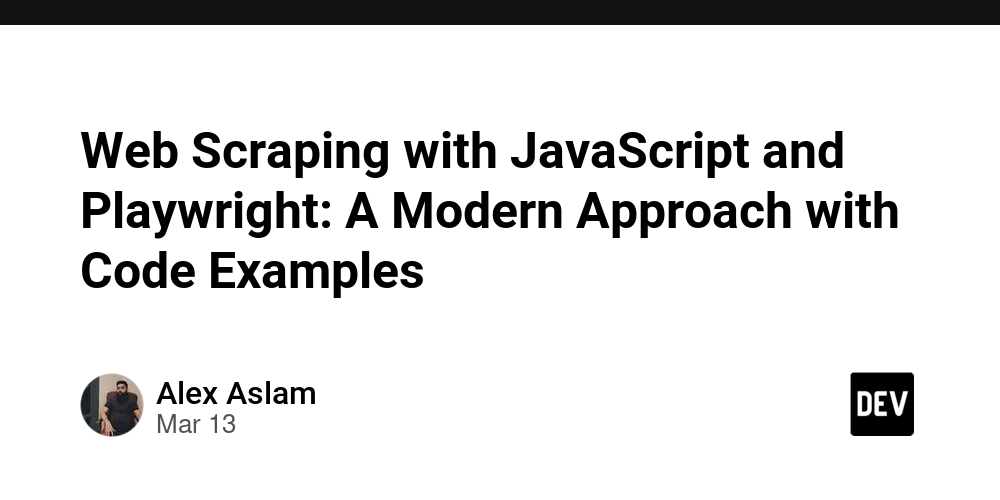
Web scraping has evolved to tackle the challenges of modern web applications, where content is often loaded dynamically via JavaScript. Enter Playwright—a powerful, open-source automation library by Microsoft that simplifies scraping complex websites. Unlike older tools, Playwright supports Chromium, Firefox, and WebKit out of the box and handles SPAs, authentication, and even shadow DOMs with ease.
In this guide, you’ll learn how to scrape websites using JavaScript and Playwright, complete with practical code examples.
Why Playwright?
- Cross-browser support: Scrape with Chromium, Firefox, or WebKit.
-
Auto-waiting: No more manual
sleep()calls—Playwright waits for elements to load. - Mobile emulation: Test responsive sites or mimic mobile devices.
- Stealth mode: Avoid bot detection with features like masking headless browsers.
- Rich API: Handle file downloads, network interception, and more.
Setup
First, initialize a Node.js project and install Playwright:
npm init -y
npm install playwright
Basic Scraping: Extracting Data
Let’s scrape book titles and prices from a demo e-commerce site (https://books.toscrape.com).
const { chromium } = require('playwright');
(async () => {
// Launch a headless browser
const browser = await chromium.launch({ headless: true });
const page = await browser.newPage();
// Navigate to the target page
await page.goto('https://books.toscrape.com');
// Extract book titles and prices
const books = await page.$$eval('.product_pod', (items) => {
return items.map(item => ({
title: item.querySelector('h3 a').getAttribute('title'),
price: item.querySelector('.price_color').innerText,
}));
});
console.log(books);
await browser.close();
})();
Explanation:
-
chromium.launch()starts a headless browser instance. -
page.$$eval()runs a function in the browser context to query DOM elements. - The selector
.product_podtargets each book container, and nested queries extract the data.
Handling Dynamic Content
Modern sites often load data via AJAX or user interactions (e.g., clicking "Load More"). Playwright makes this straightforward:
const { firefox } = require('playwright');
(async () => {
const browser = await firefox.launch({ headless: false });
const page = await browser.newPage();
await page.goto('https://example-infinite-scroll.com');
// Scroll to the bottom repeatedly until no more content loads
let previousHeight;
while (true) {
previousHeight = await page.evaluate('document.body.scrollHeight');
await page.evaluate('window.scrollTo(0, document.body.scrollHeight)');
await page.waitForTimeout(2000); // Wait for content to load
const newHeight = await page.evaluate('document.body.scrollHeight');
if (newHeight === previousHeight) break;
}
// Extract all loaded items
const items = await page.$$eval('.item', elements =>
elements.map(el => el.innerText)
);
console.log(`Loaded ${items.length} items.`);
await browser.close();
})();
Advanced Techniques
1. Authentication & Sessions
Log into a site and reuse cookies for future sessions:
const { webkit } = require('playwright');
(async () => {
const browser = await webkit.launch({ headless: false });
const page = await browser.newPage();
// Navigate to login page
await page.goto('https://example.com/login');
await page.fill('#username', 'user123');
await page.fill('#password', 'pass123');
await page.click('#submit');
// Wait for login to complete
await page.waitForNavigation();
// Save cookies for reuse
const cookies = await page.context().cookies();
console.log('Cookies saved:', cookies);
await browser.close();
})();
2. Avoiding Detection
Use Playwright’s stealth plugins to mimic human behavior:
const { chromium } = require('playwright');
const stealth = require('puppeteer-extra-plugin-stealth')();
(async () => {
const browser = await chromium.launch({
headless: false,
args: ['--disable-blink-features=AutomationControlled']
});
const page = await browser.newPage();
// Mask headless browser fingerprints
await page.addInitScript(() => {
delete navigator.webdriver;
});
await page.goto('https://example-protected-site.com');
// ... proceed with scraping
})();
3. Intercepting Network Requests
Capture API responses to scrape data directly from XHR/Fetch calls:
const { chromium } = require('playwright');
(async () => {
const browser = await chromium.launch();
const page = await browser.newPage();
// Listen for network responses
page.on('response', async (response) => {
if (response.url().includes('/api/data')) {
const data = await response.json();
console.log('API Data:', data);
}
});
await page.goto('https://example-spa.com');
await browser.close();
})();
Best Practices
-
Rate Limiting: Use
page.waitForTimeout()to space out requests. -
Error Handling: Wrap actions in
try/catchblocks. -
Selectors: Prefer
text=orrole=selectors for reliability. -
Headless Mode: Use
headless: falsefor debugging.
Ethical Considerations
- Respect
robots.txtand website terms of service. - Avoid scraping personally identifiable information (PII).
- Use proxies or rotating IPs to prevent overloading servers.
Conclusion
Playwright is a game-changer for web scraping, offering unparalleled flexibility for handling dynamic content, authentication, and anti-bot measures. With its intuitive API and cross-browser support, it’s a must-have tool in your scraping toolkit.
Next Steps:
- Explore Playwright’s official documentation.
- Build a price tracker or social media sentiment analyzer.
Call to Action
Got stuck? Check out Playwright’s debugging guide or drop a comment below!









































































































































































![[The AI Show Episode 142]: ChatGPT’s New Image Generator, Studio Ghibli Craze and Backlash, Gemini 2.5, OpenAI Academy, 4o Updates, Vibe Marketing & xAI Acquires X](https://www.marketingaiinstitute.com/hubfs/ep%20142%20cover.png)














































































































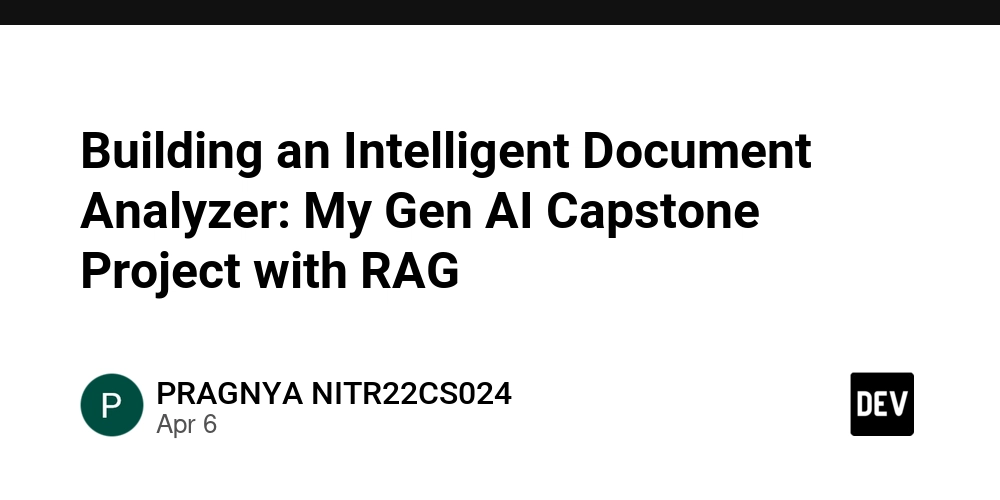
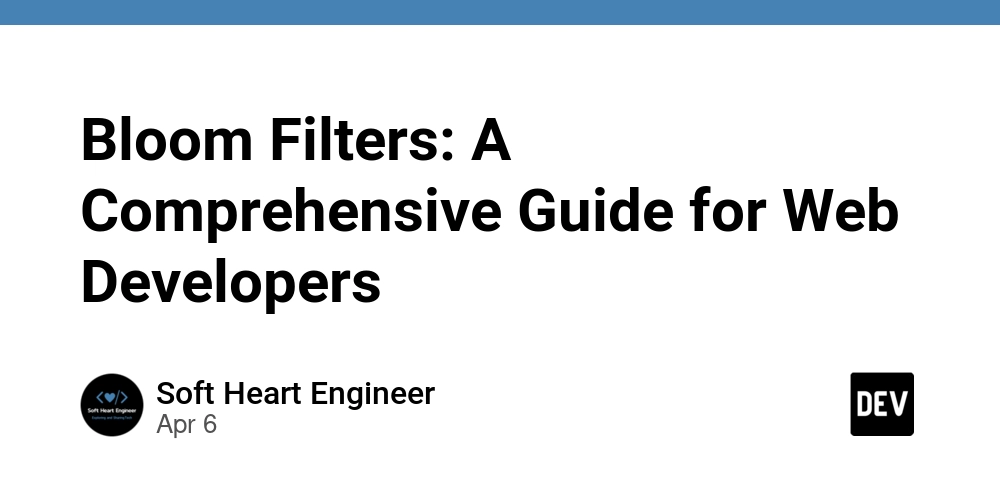
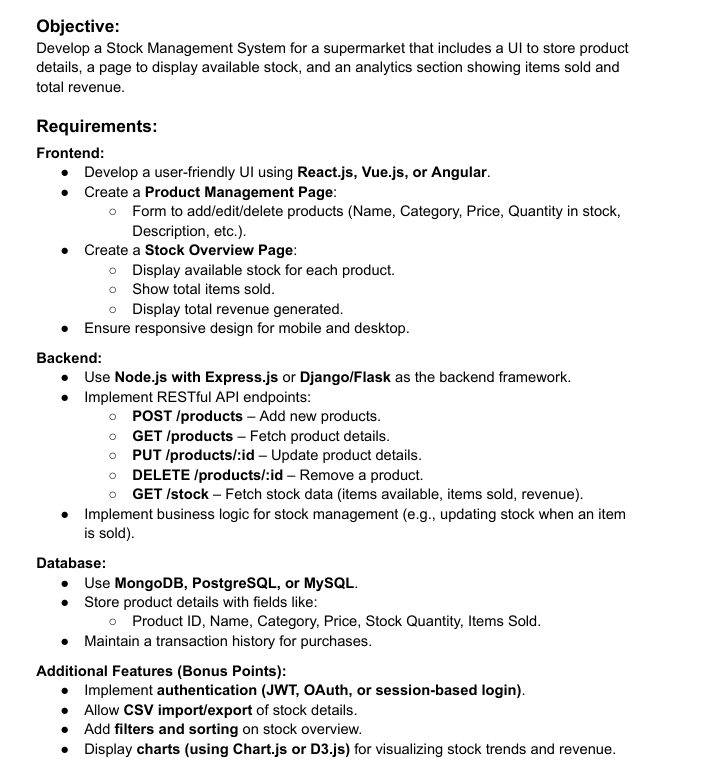









![[FREE EBOOKS] The Kubernetes Bible, The Ultimate Linux Shell Scripting Guide & Four More Best Selling Titles](https://www.javacodegeeks.com/wp-content/uploads/2012/12/jcg-logo.jpg)



![From drop-out to software architect with Jason Lengstorf [Podcast #167]](https://cdn.hashnode.com/res/hashnode/image/upload/v1743796461357/f3d19cd7-e6f5-4d7c-8bfc-eb974bc8da68.png?#)







































































































.png?#)




.jpg?#)
































_Christophe_Coat_Alamy.jpg?#)
 (1).webp?#)





































































































![Rapidus in Talks With Apple as It Accelerates Toward 2nm Chip Production [Report]](https://www.iclarified.com/images/news/96937/96937/96937-640.jpg)





















































